Pet rehabilitation, physical therapy the latest craze for injured animals
Laser treatments, massages, underwater treadmill therapy and even acupuncture — these are some of the services helping injured and rundown pets get back to full health. SEE THE AMAZING PICTURES
NSW
Don't miss out on the headlines from NSW. Followed categories will be added to My News.
Some people might call it doggone crazy but it seems there is no limit what people will do to get their furry friends back on their feet — all four of them.
Once the preserve of high-end hospitals or professional sporting clubs, laser treatments, massages, acupuncture underwater treadmills and TENS machines are now being unleashed on pets.
Paul Partland, veterinarian and hospital director of Illawarra Animal Hospital, said there is a growing demand for pet rehabilitation.
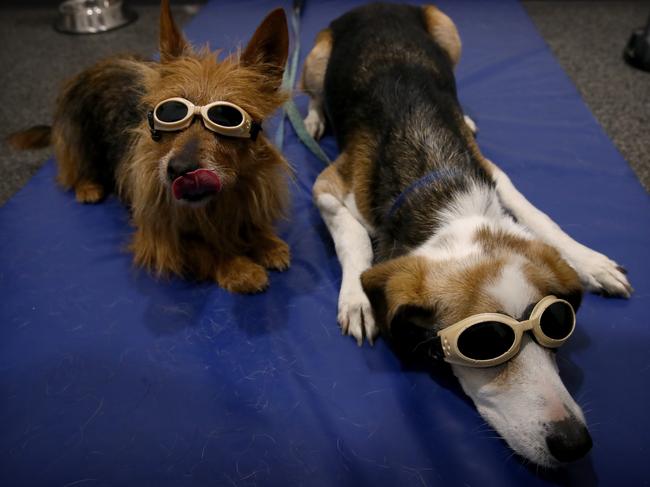
“(The animals) might come in for the whole day and in that time they may do some laser treatments, massages, underwater treadmill therapy and even acupuncture; all the animals just absolutely love it,” he said.
It also has visible benefits.
“Some dogs come to us and they’re not walking and what we’re able to do is increase those functions and get them into wheelchairs in some occasions … and in other occasions get them back to walking by themselves,” he said.
While most of the patients are dogs, cats are also coming in for the special treatment.
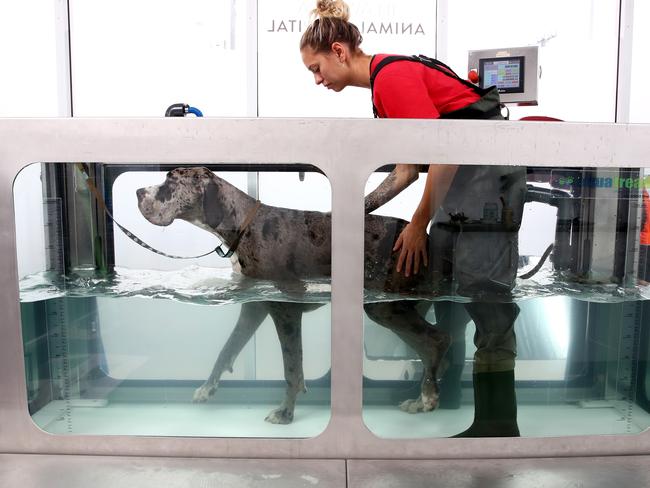
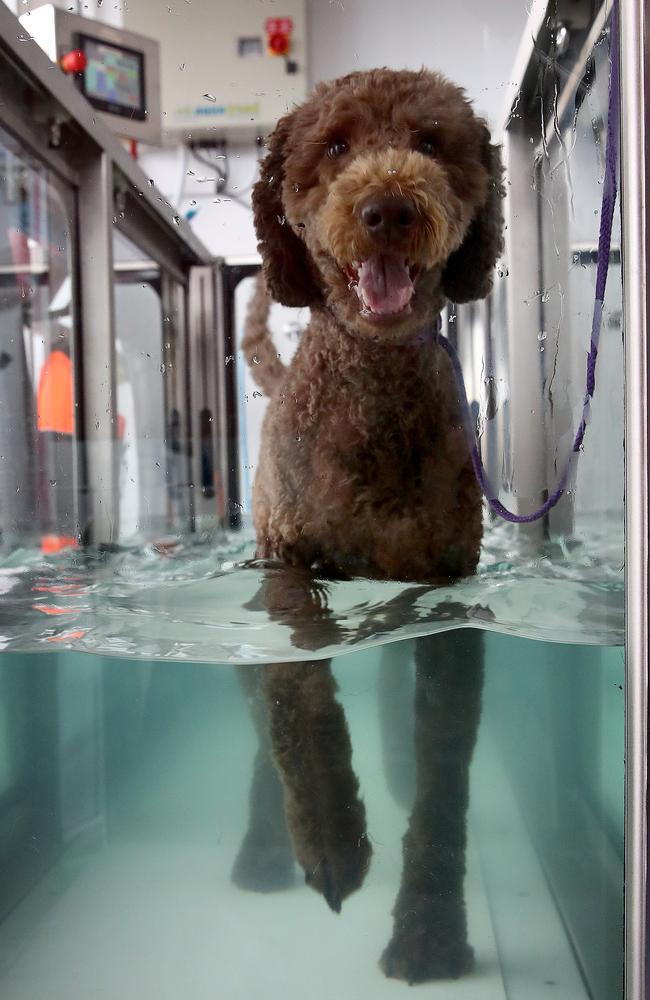
“In a lot of respects, animal rehabilitation and injury management in Australia has been behind the rest of the world — but people’s interest in this space is really increasing,” he said.
“There is no doubt in my mind — particularly when it comes to surgical and non-surgical cases — that the outcomes that we achieve now parallel human medicine.
“Historically, the treatment focus has been based on pain management and care, now we are taking it to the next level.”
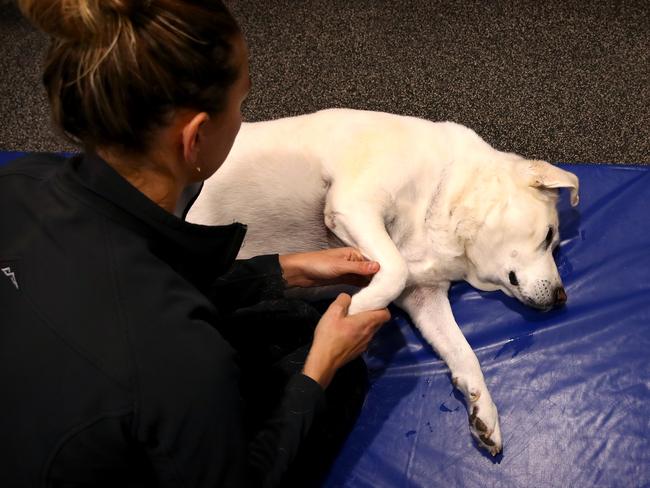
Mr Partland, who opened Illawarra Animal Rehabilitation in 2018, said that not only do the animals benefit immensely from the treatments, they also really enjoy it.
“We’re able to treat lots of different things like cruciate ligament injuries and patella luxations in the same building,” he said.
“So, the surgeon will be able to do the surgery and then the patient will come back for some rehab ongoing for the next six weeks or so, and that enables them to maintain the continue of care for the patients.
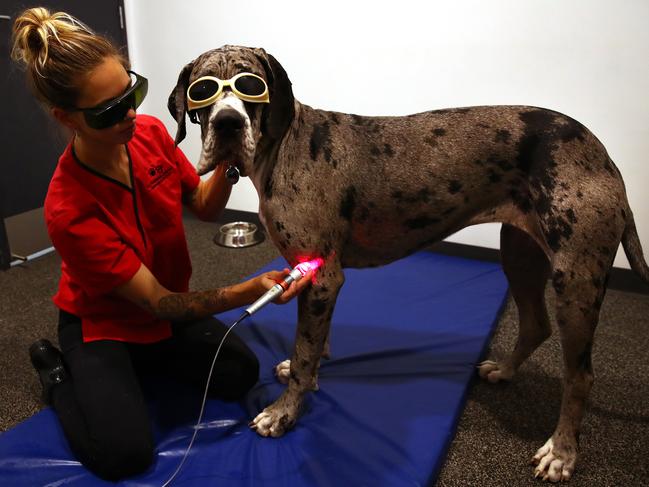
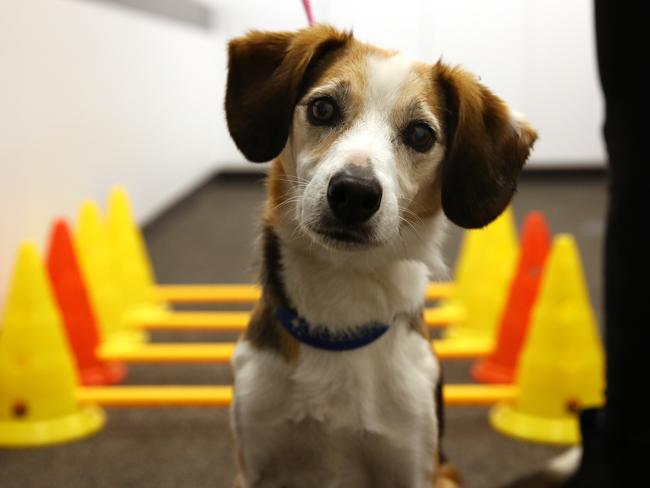
“We have some very committed owners and clients who bring their animals in on a regular basis and the reason they do is because they see outstanding results, and they see that their animals are able to move better.
“Most of our patients are dogs but we do have some cats, particularly post-surgery that do go through a rehabilitation program. It’s an amazing thing to see.”
An initial consultation at the facility will cost $95, after that treatment costs are typically between about $60 to $130 depending on the animal’s individual needs.
